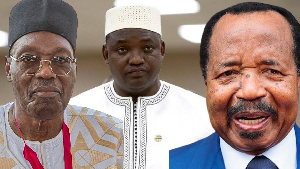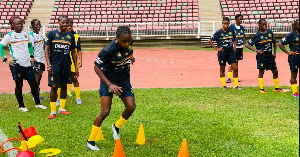As Islamic militants from Boko Haram step up attacks in Nigeria that have led to the slaughter of more civilians, there is increasing talk that international military action, possibly including a multinational force, might be needed to help crush the insurgency in Africa’s most populous country.
The debate has taken on new urgency since Jan. 3, when Boko Haram extremists swept into the northeastern town of Baga in Borno state, overran a military base and, according to witnesses, killed hundreds of civilians in the days that followed.
It was one of the most brazen assaults since militants kidnapped nearly 300 girls last year, setting off an international outcry.
Amnesty International has released satellite images showing widespread destruction — with about 3,700 structures damaged or destroyed — but the horrifying picture of the attack is incomplete because aid workers, journalists and others cannot reach the Boko Haram-controlled area. Extremists, who encountered resistance from civilian militias in Baga, systematically slaughtered civilians in what analysts believe was retaliation for their defiance.
Boko Haram’s message, according to analyst Matthew Henman, was: “If you organize these militias against us, this is the response that you will receive.”
President Goodluck Jonathan, who is running for re-election next month, visited Maiduguri, the capital of Borno state, Thursday in his first trip to the northeast since a state of emergency was imposed in May 2014.
His office said in a statement that he met with troops involved in fighting the extremists. He also visited hundreds of civilians who were staying in a camp in Maiduguri after fleeing Baga.
Nigeria’s neighbors already are being shaken by Boko Haram’s territorial expansion. Niger, Chad and Cameroon have seen flows of refugees into their countries. In the case of Cameroon, there even have been some cross-border attacks.
Thursday, U.S. Secretary of State John Kerry said he and British Foreign Secretary Philip Hammond discussed a special initiative to deal with Boko Haram, but he did not elaborate.
Speaking in Sofia, Bulgaria, Kerry said Boko Haram is “without question one of the most evil and threatening terrorist entities on the planet,” and that the killing in northeastern Nigeria is a “ crime against humanity” and must be addressed.
The United States and other countries offered training and other assistance to the Nigerian military after Boko Haram seized 276 girls from a boarding school in April, but most of them remain missing.
The deployment of a multinational force to fight Boko Haram does not appear imminent and would take considerable political will, in addition to needing a green light from a Nigerian government that has appeared leery at times of perceived foreign meddling.
However, a U.N. official said on Wednesday that there will be a meeting on Tuesday in Niger’s capital, Niamey, to explore the idea of a regional force to confront Nigeria’s militants.
Neighboring governments reportedly are talking about sending 3,000 troops to the west African nation with a mandate to recover territory from Boko Haram, the U.N. official said. The operation would be supported by the African Union and potentially “blessed” by the U.N. Security Council, the official said.
Opinions of Friday, 16 January 2015
Auteur: Christopher Torchia, AP















